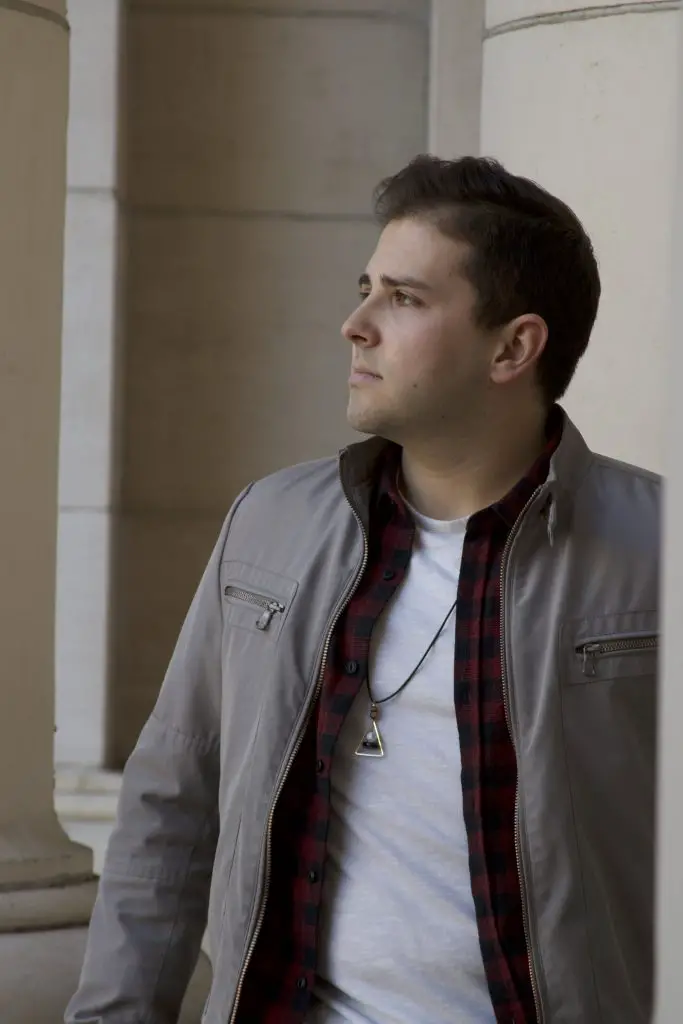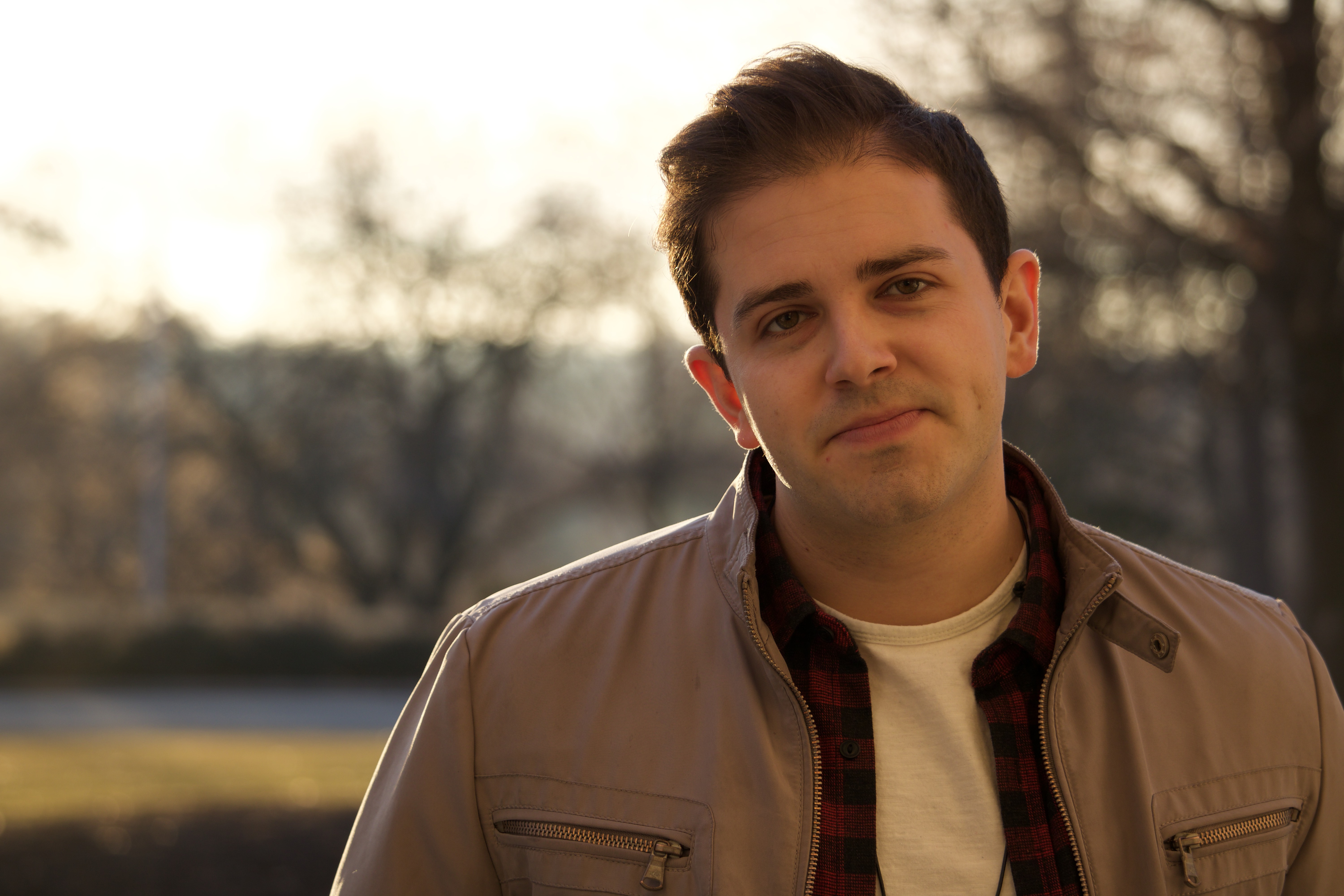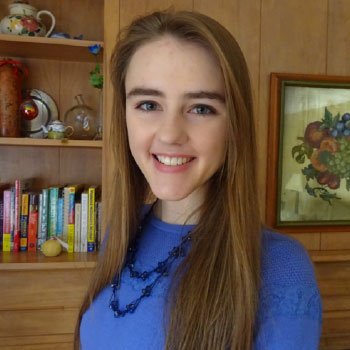For the past few years, Brigham Young University has hovered near the top of Princeton Review’s list of the most LGBTQ-unfriendly colleges in the U.S. A large university in Provo, Utah, BYU is owned by the Church of Jesus Christ of Latter-Day Saints, and historically, it has allowed its religious foundations to prevent it from treating students equally.
The school doesn’t attempt to hide its prejudice against queer members of its community: simply searching “LGBTQ” on BYU’s website unearths pages of articles from the student newspaper reporting increased rates of depression and suicide among queer students and controversy over protests in favor of queer rights.
But the negative articles are nearly outnumbered by reports of attempts to educate a prejudiced community through panels, guest speakers and film screenings. Understanding Same Gender Attraction (USGA), a BYU club striving to create a campus community for LGBTQ students, has been central to these efforts—and senior J.D. Goates is at its helm.
Goates started attending USGA meetings his freshman year, when he heard a professor mention the organization in passing. Back then, the culture of hostility toward LGBTQ people was even more perverse than it is today, and Goates felt alone with no community to support him. “I felt as though I was the only gay person at BYU,” he says. “Logically, I knew there had to be other gay people there, but it just didn’t feel like it.” His sense of isolation and lack of support led him to devote time to USGA, eventually becoming its president.
“It was very isolating,” Goates remembers. “And unfortunately, that’s what many students at BYU experience, and it’s because they just don’t know — they don’t know that they can identify as LGBTQ; they don’t know that there are other out LGBTQ people; they don’t know there’s a community; they don’t know they have friends; they don’t know they have support.”
USGA strives to lend students the support they are missing by hosting socials, barbeques, game nights, education nights, guest speakers and presenters. The club also regularly forms panels that allow students like Goates and others to educate BYU parents, professors and students on a variety of topics: navigating faith and sexuality, being queer in the working world, becoming a better ally, coming out to parents and being supportive to LGBTQ children. “We like to do many things that can educate, but also provide a space for a community.”

Goates says that USGA supports every student equally, without influence or bias. “USGA has a position of neutrality when it comes to someone’s life,” he says, and the cold wording of this statement only reinforces the professionalism of the organization’s relationship with the students they support.
“For example, we’re not going to tell someone that they have to stay within their faith—instead, we’re going to encourage them to make their own decisions, and if that means staying in their religion, as I plan on doing, then that’s great and we support it,” he explains. Even if a student decides to leave their religion, they will find reassurance and encouragement in USGA. “We’re about unconditional support regardless of life trajectory.”
But USGA isn’t the only place students can turn to for support; Goates says people consistently report that BYU’s Counseling and Psychological Services are an excellent confidential resource for queer and straight students alike. This reality is a positive opposition to the widespread fear that counselors will try to change students’ sexualities.
“A lot of people are very scared to go to a therapy session at BYU—they’re afraid that there will be attempts for aversion therapy or electroshock therapy or essentially any kind of therapy to change your sexual orientation,” Goates says. “That is not a practice. In fact, if that is suggested by someone, the school wants to shut it down and prevent it from happening.” The presence of such an accessible and trustworthy resource is no doubt a comfort for queer students seeking a confidant, and the counselors’ kindness can make a an otherwise difficult college experience much smoother.
Unfortunately, USGA’s efforts to build a queer community and counselors’ efforts to give students the help they need are in a state of constant push and shove with the existence of BYU’s Honor Code. The Honor Code tells students how to dress, how to style their hair, how to behave and how to express their sexuality — namely, don’t.
Under the section titled “Homosexual Behavior,” the Honor Code states: “One’s stated same-gender attraction is not an Honor Code issue. However, the Honor Code requires all members of the university community to manifest a strict commitment to the law of chastity. Homosexual behavior is inappropriate and violates the Honor Code. Homosexual behavior includes not only sexual relations between members of the same sex, but all forms of physical intimacy that give expression to homosexual feelings.”
According to Goates, all students must sign and agree to follow the Honor Code when they enroll at BYU, and if they violate it, they are subject to harsh discipline, from a warning to suspension to expulsion. Anyone can report a student to the Office—faculty, staff, students, even parents or other people with no direct connection to the school. “One of the issues that BYU students currently face is a fear. There’s a fear of being kicked out,” Goates says. “There’s a fear of losing the life that you’ve worked hard to build.”
If the Honor Code’s intention is to instill fear in LGBTQ students, it has succeeded. Even when students are doing nothing wrong, they still face the anxiety that someone might misinterpret their actions and report them to the Honor Code Office. “I can’t go out to lunch with my best friend, my roommate, who’s a straight man, without constantly having to look over my shoulder and worry that someone’s going to see us, and because I’m an out man, think that we’re on a date and report us to the Honor Code Office,” Goates says. “And then it becomes my word versus theirs, and as the ‘guilty party,’ my opinion is going to hold less weight.”
Even same-gender relationships, when students can get away with them, are tense under the fear of the Honor Code. “If people are in relationships or are being physical or intimate, there’s still a feeling of distrust,” Goates says. “It’s really rough, and it’s isolating, and it’s hurtful.” Such distrust between partners likely would not exist if the Honor Code didn’t either, but since it is such a cornerstone of BYU’s mission as a school, it is most likely here to stay.
Recent news articles about BYU and its discriminatory policies reinforce the fear of living under the Honor Code that Goates describes. In 2016, The Salt Lake Tribune published a harrowing article about the vulnerability of LGBTQ victims of sexual assault. According to the article, “Advocates for LGBT students say coming out brings such scrutiny that even people who have no intention of dating tend to seek support in secret, often online.”
This has created a network of online predators who take advantage of queer BYU students and their reluctance to speak out after assault for fear of outing their orientation. As horrifying as this victimization may be, students face equally terrible consequences from the Honor Code Office if they choose to report an assault.

The Tribune tells the story of a gay student raped by an older man when he was a minor. Not knowing where to turn for help, he reported it to the school, and the Honor Code Office stripped him of his job, housing and right to participate in activities; he could go to class, but that was all. Another student dropped out after reporting his rape rather than face the stress and shame of admitting homosexual relations, despite their nonconsensual nature, to the Honor Code Office.
BYU’s discriminatory handling of such cases is on the national radar: The university is on a list of 200 schools across the country under federal investigation for their poor handling of sexual assault cases, and LGBTQ rights activists have been pressuring the Big 12 conference to disqualify BYU due to its discrimination against queer students and staff. However, progress has been slow, and BYU is still allowed to compete and discriminate.
Even state law cannot touch the school: because of its status as a private institution, BYU has avoided accountability for its discrimination against the LGBTQ community. According to a 2015 Washington Post article, “During the 2015 legislative session, Utah lawmakers, gay-rights advocates and Mormon leaders hammered out an anti-discrimination law that extends housing and employment protections to LGBT people while also safeguarding some religious liberties.” However, BYU was labeled exempt from this law.
While such incidents have hindered progress, some things have improved since Goates’ isolated freshman year. A Huffington Post article reported that in 2014, a survey was distributed to BYU students, asking, “What is your sexual orientation?” The only responses provided were “I am heterosexual, but I struggle with same-sex attraction,” “I am heterosexual and do not struggle with same-sex attraction” and “other, please specify.” But, in December 2017, the article was updated — its publication had spurred the Church of Latter-Day Saints into action, and the same survey question is now distributed with answer choices “yes,” “no” and “other.
A small improvement, but everything helps. Even so, why not transfer rather than endure BYU’s discrimination? Goates says students are reluctant to leave a school that they care about despite its flaws. “BYU may have its ups and downs, but, in general, I actually love my school. And I think that’s true for many students — they love the school, and they don’t want to walk away from it, but that doesn’t mean it isn’t hard. A lot of people do decide that they would have a better college experience going to a different university, whereas many others — like myself — have decided that it’s the right place for us.”
From his experience, Goates is skeptical that transferring would automatically improve a queer student’s life. “You experience acts of discrimination no matter where you go. It’s one of the things I’ve learned in life.” But it isn’t everywhere that an LGBTQ person will be told they are simply facing a conscious choice between heterosexuality and queerness. “That is a very frequent thing that people say — ‘it’s natural, you don’t choose to be gay, but you can choose not to act on it,’” Goates says. “It’s like a predisposition to addiction — you can choose not to be addicted.” This attitude is widespread at BYU; LGBTQ students hear it not only from classmates, but also from parents and professors.
Goates says that although the vast majority of BYU professors are LGBTQ-affirming, the few who are homophobic do the most damage. USGA, however, has made impactful attempts to alert the administration to the harm these professors are causing. “As a club, we have gone to the individual colleges and given the deans of each of these colleges ways to help teachers understand what’s going to help LGBTQ students feel included and what’s not,” Goates says. “Most of the faculty is extremely open to it and extremely interested because professors at BYU truly care about the development of their students. I’ve talked with the administration multiple times on how to deal with this, and they are very concerned about students’ cultural concerns.”
“One of the issues that BYU students currently face is a fear. There’s a fear of being kicked out,” Goates says. “There’s a fear of losing the life that you’ve worked hard to build.”
But despite the administration’s interest in students’ issues, and despite the fact that USGA has had an immensely positive impact on the school’s attitude of acceptance in the past few years, the organization is still an unofficial club. Its leaders have made repeated attempts to change its status, but Goates, who meets with the administration weekly, says that USGA’s existence as an unofficial club isn’t a problem with the school.
“The administration knows we exist and they’re fine with us existing. I can’t give you a reason why they won’t add us as a club; however, I really do think that the university is heading in a great direction. Given my work with people currently in charge, I think that they truly care about the experiences of the students and they want to make all students feel welcome to the best of their abilities.”
BYU seems to be headed in the right direction, but Goates graduates in the spring, and USGA will have to keep pushing for change without him. After graduation, Goates hopes to attend grad school, where he plans to join a clinical psychology program.
“Working with USGA has set me on a course to understand more about microaggressions and minority stress and other issues, so I’m very interested in researching that when I go to grad school,” he says. “Being in USGA has really helped me understand that there is a world outside of the microcosm that is my current experience. It’s helped me to connect with people, not only in the queer community, but in the larger community.”
Beyond continuing his education, Goates wants, above all, to be free to continue being himself without apology. “I plan on living my life,” he says, and after four years fighting to gain equality at BYU, it’s safe to say that he deserves to live the way he wants.
Despite BYU’s problems, Goates has found a place there, and he is leaving his school with more knowledge and self-love than when he arrived. “I’ve gained the courage to say that I deserve to exist. I think that’s the most important thing, for an individual to feel like they deserve to exist—and I can’t say that I had that feeling my whole life. As part of USGA, I found a community, and I found that I deserve to be.”

















